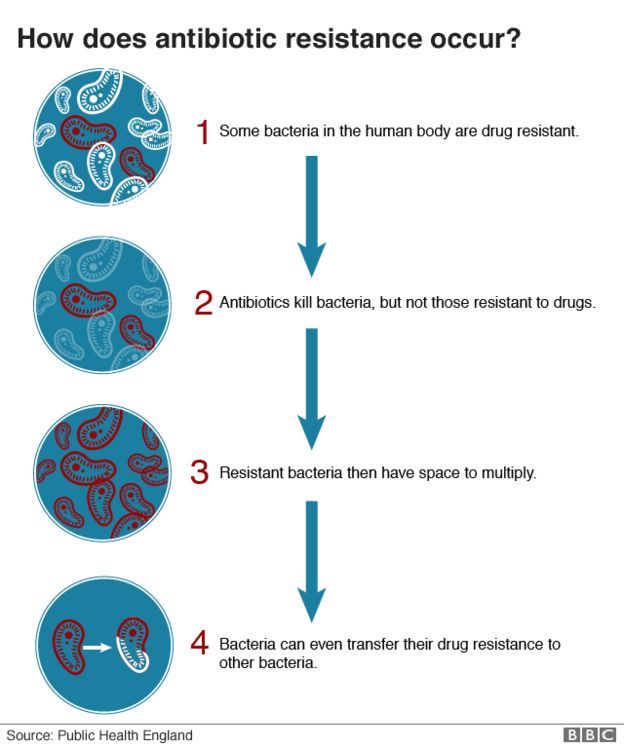How do antibiotics work?
Although there are a number of different types of antibiotics, they all work in one of two ways:

- A bactericidal antibiotic kills the bacteria. Penicillin is a bactericidal. A bactericidal usually either interferes with the formation of the bacterium’s cell wall or its cell contents.
- A bacteriostatic stops bacteria from multiplying.
What are antibiotics for?
An antibiotic is given for the treatment of an infection caused by bacteria. Antibiotics target microorganisms such as bacteria, fungi, and parasites. However, they are not effective against viruses. If you have an infection it is important to know whether it is caused by bacteria or a virus.
Before bacteria can multiply and cause symptoms our immune system can usually destroy them. We have special white blood cells that attack harmful bacteria. Even if symptoms do occur, our immune system can usually cope and fight off the infection. There are occasions, however, when it is all too much and our bodies need some help — from antibiotics.
Antibiotics may be given beforehand, to prevent infection, as might be the case before surgery. This is called “prophylactic” use of antibiotics. They are commonly used before bowel and orthopedic surgery.
A broad-spectrum antibiotic can be used to treat a wide range of infections. A narrow-spectrum antibiotic is only effective against a few types of bacteria. There are antibiotics that attack aerobic bacteria, while others work against anaerobic bacteria. Aerobic bacteria need oxygen; anaerobic bacteria don’t.
Allergic reactions to antibiotics
Some patients may develop an allergic reaction to antibiotics — especially penicillins. Side effects might include a rash, swelling of the tongue and face, and difficulty breathing. If you have ever had an allergic reaction to an antibiotic you must tell your doctor and/or pharmacist. Reactions to antibiotics can be very serious and sometimes fatal, they are called anaphylactic reactions.
Use antibiotics with extreme caution and ensure you inform your doctor/pharmacist if:
- You have reduced liver or kidney function.
- You are pregnant
- You are breastfeeding
